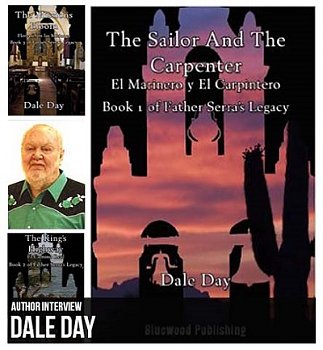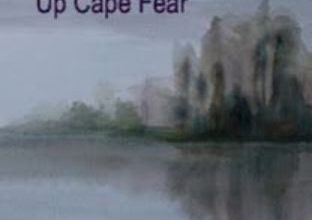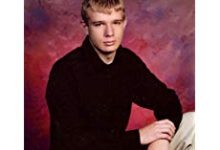Author Interview with Dale Day
This month we interview Dale Day or better known to forum members as Ivcabbie.
Thank you for joining us, Dale. Please tell us a little about yourself including hobbies and interests.
I’m a fat old guy who’s losing his hair and needs a walker. The major part of my life has been spent as a retired US Army sergeant who messed around in a lot of different jobs. And, when I couldn’t do any of those anymore, I turned to a childhood passion, books. I’ve always been a story teller and have had the blessing of being able to put down my thoughts, ideas, and memories for others to read – and hopefully enjoy. After 3 less than sterling marriages, I was led to meet and marry a wonderful woman from Mexico and we’ve been married 28 years – and hopefully a whole lot more.
Who or what inspired you to write your first novel, The Sailor and The Carpenter?
I grew up in Southern California and, when ditching school, I rode my bicycle all over the Los Angeles basin. That included visits to the county museum and missions San Gabriel and San Juan Capistrano. I looked at those awesome establishments and what I was being taught in school about them made no sense. The Indians were not kept in chains and, according to what I saw, loved the friars and diligently worked to make the missions successful.
In the following years, I was fortunate to be able to visit all of the 21 missions in the state of California and many south of the border, in Baja California, Mexico. Once retired, I had the chance of researching the missions and the men who created them.
There came a time when I simply had to set the record straight. Everything I found were dry non-fiction tomes that never seemed to bring to life the human beings involved. So, I decided to try the route of telling the story through the eyes of those who lived in those times. Who better than a non-Spanish European and a Mexican Indian? Thus the characters came to life to tell the story so few know about.
Is there a genre that you would not attempt to write, what and why not?
Romance. I’ve never read it and have no interest in ever doing so.
What inspired you to write the Father Serra’s Legacy series?
It simply followed as natural that the story of Father Serra and the Spanish soldiers needed to be told in parts. The Sailor and The Carpenter deals with the period from when the Franciscans arrived in Baja California until they reached the future site of San Diego. The Kings Highway tells the story of the original exploration of the present-day State of California, locating sites for the missions, and the establishment of the first nine until the death of Father Serra.The Missions Bloom is the story of the founding of the remaining missions.I have finished a fourth novel in the series, The Missions Wither, but have not submitted that to my publisher. It chronicles the stupidity by which the missions were taken away from the friars and the Indians were sent into exile, to be wiped out by the first American government.
What were the challenges (research, literary, psychological, and logistical) you experienced in writing this series?
Research and research and research. So much written about the times – and unfortunately much of it highly biased. The individual considered to be the “expert” in the missions was Hubert Howe Bancroft who published a series of books based upon documents he sent assistants out to gather up. Unfortunately, Bancroft was a Midwestern Protestant bigoted against the Catholic Church with a loathing of the “American barbarians” who presented a totally slanted view. Finding the truth amidst all of that was the biggest challenge. And I received lots of help. From a Catholic priest at Mission Santa Barbara and David Kier, a man who probably knows more about the missions of Baja California than any man alive. And, even then, when the books were sent to the publisher, I kept finding new sources of information.
The latest book in the series is The Missions Bloom (Father Serra’s Legacy). What is the book about?
Some dedicated friars and soldiers did their best to carry out the mission given to Father Serra by the King of Spain – to ensure the territory did not fall into the hands of Russian fur traders. The friars, of course, found their singular goal to bring The Word of God to the Indians and give them a better way of life. The Missions Bloom tells of how, in spite ofweather and other setbacks, the missions became productive, entirely self-supporting communities.
Please can you share a short excerpt?
This is from Chapter Nine and gives a clear view of how the story is told:
Late 1786 – Another Mission Founded
“Tio, be careful!”
Timothy stopped hoeing, wincing at the urgency in the little girl’s voice. He saw her push back a stray tress of her dark brown hair, smiling at the little face so much like her mother’s. “Hija, what is wrong?”
Rosa Maria came close and laid her small but strong hand on the handle of the hoe and lifted it from the soft, recently turned soil. “That is one of the new papas the French captain brought from the south. Nita tells me they are much better than the old ones. Tia and mi madre tell me they will grow well here in our gardens.”
Timothy tousled his niece’s hair and stepped back. It gave him a chance to stretch the sore muscles in his back. Working in the garden is much harder than it appears.
“You should go back inside the house, Tio. Tia will be most unhappy with me for letting you work here in the garden. It is not your work to do.”
“There, there, child. You need not chide me.” He handed her the hoe, bending to kiss her forehead before turning to carefully make his way between the rows of ripening plants.. The Three Sisters were doing quite well, the stalks of corn reaching just above the top of his head. All bore ears trailing long golden tassels. It will be a good harvest. He chuckled.
The little girl’s brow furrowed. “Did I do something wrong, Tio?”
“No, no, Hija. It is just that you are so very much like your mother.”
She giggled, then handed over one of the wicker baskets filled with ripe vegetables for the dinner table.
The chirrrrr stopped Timothy in his tracks. The rattlesnake was warning the intruder of her presence.
Before Timothy could do anything, Rosa Maria swiftly moved between her uncle and the snake coiled at the side of a row of Three Sisters. Timothy’s blood turned cold when the child squatted on her haunches and held out her small hand to the poisonous creature.
“There, there, Sister Slippery One, Tio Timoteo did not know you were there. He will not hurt you.”
Much to Timothy’s amazement, the snake did not bury its fangs into the tiny hand, lowering its head a bit as fingers softly caressed the top of its head. The warning signal of its rattles stopped and the rattlesnake uncoiled and slithered back into the safety of squash vines.
“She and her family keep away the rabbits, mice and moles that would come to feed upon the richness we grow.”
Sucking in a lungful of air, Timothy struggled to calm his beating heart. How can she be so calm? Before he could say anything, she gaily arose and hurried over to the wicker basket waiting for her.
When Timothy told Carla of what had happened, she formed the enigmatic smile he found so endearing. “She is very good with animals. They sense her innocence, and I have seen her feeding birds as they sit on her shoulders and even the top of her head.”
Timothy gave his wife a brief kiss. “All of the women of this family are special in their own ways. I do not think we men could survive without you.”
“Deer Maiden says she has the magic to become a curandera.”
That was Jaime’s response when Timothy repeated the story of the little girl and the snake. He turned slightly to see Father Gregorio’s response as, officially, the friars could not accept the belief that the local healers could possess any qualities considered to be barbaric magic. Only those bestowed with the authority to conduct rites of the Holy Church could call upon Blessed Jesus and the Holy Father to do such things. At the same time, the priests frequently went to Deer Maiden, or whatever curandera, was available to help heal the sick and injured.
The friar continued to rock, fingering his prayer beads.
“Word has come that the Audencia has approved the construction of Misión Santa Bárbara. Father President Lausén will leave shortly. Fathers Paterna and Oramer will preside.”
“José Maria Samaniego will go to be mayordomo,” Jimmy added to Father Martin’s words. He spent a lot of time with his crew and other members of the pueblo. “Although he is of Spanish blood, Don José is considered a strong but fair foreman.” After a pause, he added, “And Doña Juana deals well with the wives and children.”
“Any idea which soldiers will be assigned to the mission?”
“Lieutenant Carrillo will certainly assign married soldiers to guard the mission.”
Timothy did not doubt his son’s assessment. The youth liked to chat with the soldiers whenever he had the chance.
“He will likely assign Corporal Olivera to lead the squad of Presidials.” Jimmy added that his wife Marcela and their two young children would be productive members of the congregation.
“Padre Oramer told me that he is looking forward to the task.” Father Gregorio had a far away look upon his face.
“Do you wish that was you, padre?”
Father Gregorio turned to sharply glance at Jimmy. He was going to say something, but held it back.
He and Father Martin had stayed close to The Family since Father President Serra assigned them so long ago back in La Paz. While they conducted Mass and other rites on a regular basis, they knew they would never have a congregation of their own. Nobody had ever questioned them about this before.
Father Martin spoke up to relieve the tension. “We have a congregation of our own right here.”
That brought chuckles from all. They referred not only to The Family but the crew of the boats, their families and their closest friends such as Claudio, Ismelda and their two children.
You have now written 12 novels, which is your favourite and why?
Every one of them is my “favorite”! They are all part of me. My life. My experiences. My dreams. My beliefs. Each came from a special place and is my way of trying to entertain and inform all who read them. Of course, like every story teller, what I am currently working on is the favorite at the moment.
Do personal experiences play a role in your writing, or is everything that happens in your stories the result of pure imagination?
What is imagination? We dream and envision things that are a result of our life experiences. A book we read. Or a movie or television show we watched. Or an event in our lives. How can we express what we do not know?
Regarding the first page, how do you go about crafting an opening that will ensure the reader continues to page two?
I write the story first. Just let it flow. Then comes the hardest part of all – going back and polishing. You need to find that one thing that sparks the flame within you and share it with your reader.
Do you work to an outline, or do you just let the story evolve?
Clearly, with historical fiction, the events guide the story – they are the outline you work from. In other genres, it’s a matter of finding the kernel of the story and building from there. That means letting the story evolve. However, the most important part can never be forgotten – THE CHARACTERS! Without them, the stories have no meaning.
What would you say are the main advantages and disadvantages of self-publishing against being published or the other way around?
Traditional publishers and traditional agents have but one thing in mind – money. Unless you already have a name that will guarantee them making money – in spite of the actual quality of the work – it’s nearly impossible for the average author to ever break into those ranks. There are exceptions of course. J.K.Rowling and Tom Clancy got struck by lightning and their exceptional products have been suitably rewarded. As for the rest of us, self-publishing is the major way we will ever get our works out to the public. Small presses like the one I have for the Father Serra’s Legacy series don’t have the huge bank accounts to run publicity programs and hire the paid reviewers they rely upon. The major disadvantage of self-publishing is the incredible amount of time one needs to try to spread the word.
What importance do you place on authors having their own website?
I don’t have a dedicated author’s website but use blogs instead. In either case, if you can direct people to your site, it’s a waste of time and effort. So, I look at my blogs as something I do because I enjoy them. If they result in sales, that’s great.
Do you think cover design plays an important part in the buying process? If so why/why not?
The cover – and title – is about the most important thing of any book. It’s what catches the eye and has them open to the first page. And, it depends upon your genre. How often do you look at covers and find it difficult to find one that truly interests you? So many look the same.
If you were a castaway on a desert island and could choose five books to be a washed ashore with you, what would they be and why?
The History of English-Speaking People by Winston Churchill
Foundation and Empire by Isaac Asimov
Mister Midshipman Hornblower by C.S.Forester
The Clan of the Cave Bear by Jean Auel
People of the Wolf by Kathleen O’Neal Gear
What are you working on at the moment?
Actually, three things:
The first is preparing a novel I wrote in 2007, Sonora Symphony, a tale about various treatments for PTSD.
Staff Sergeant Ray Daniels goes AWOL from the hospital and ends up in an all-night diner. Ex-Green Beret Joe Redmond sees the emptiness in Ray’s eyes and recognizes shell shock. This starts a friendship in which Joe, an Indian elder, helps a warrior heal unseen wounds.
The next is The Leatherjacket Soldier, a saga about Don Fernando de Rivera y Moncada who was a governor of Jesuit California, a leader of the 1769 exploration of California, and a governor of Upper California. A man who dedicated his life to his king and gave it up to uphold his honor and duty.
And finally, Juanito’s Mission, a novella about the founding of Mission San Gabriel through the eyes of a young boy.
What advice would you give to aspiring authors?
Read, read, read, and pay close attention to what you are reading. Hone your knowledge of the English language. The best thing that ever happened to me was attending an extensive course to learn German. And finally – WRITE!
Where and in which formats are your books available?
All of my works are available on all Amazon.com outlets in e-media with the books and novels in paperback. All may be found on Amazon.com with the exception of my latest story, Bullets and Beans … and a few missing things which are on Amazon.com/Dale Day.










